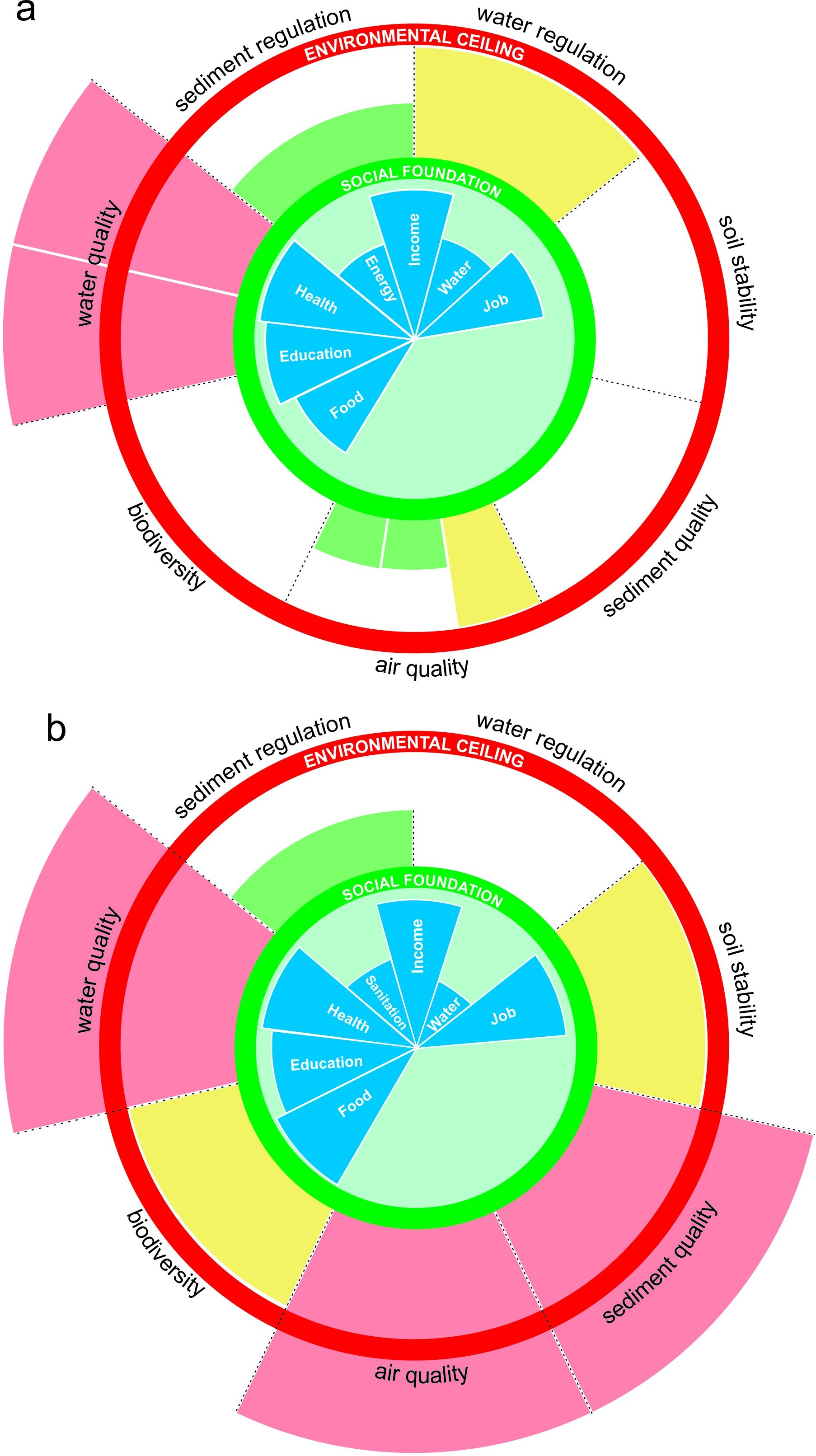- Home
- » Real World Systems
- » Safe and just operating spaces
Safe and Just Operating Spaces (SJOS)
Planetary boundaries provide a powerful concept to illustrate thow the global society needs to remain within certain safe operation spaces, as defined by biophysical limits, in order to avoid disastrous consequences. In this ESPA funded project, we propose a framework for the safe and just operating space for humanity for application at regional scales. Different empirical approaches are used to define environmental ceilimngs and social foundations.
We demonstrate the approach in two rural Chinese localities where we define the safe and just operating space that lies between an environmental ceiling and a social foundation from analysis of time series drawn from monitored and paleoecological data, and from social survey statistics respectively. Agricultural intensification has led to poverty reduction, though not eradicated it, but at the expense of environmental degradation. Currently, the environmental ceiling is exceeded for water quality at both localities even though the least well-met social norms are for available piped water and sanitation. The conjunction of these social needs and environmental constraints around the issue of water access and quality illustrates the value of the safe and just operating space approach for sustainable development.

Figure: Safe and just operating spaces mapped for two regions in China a) Erhai lake-catchment system, Yunnan Province; b) Shucheng County, Anhui Province showing the extent to which each region currently meets expected social norms (blue sectors) for an acceptable social foundation (green circle), and the current status category of key ecological processes: safe (green), cautious (yellow) and dangerous (red). The environmental ceiling (red circle) defines the approximate boundary between sustainable and unsustainable use of ecological processes. The safe and just operating space exists as a ‘doughnut’ between the environmental ceiling and social foundation. Blank sectors indicate unavailability of data (Dearing et al. 2014).
Dearing, J.A., Wang, R., Zhang, K., Dyke, J.G., Haberl, H., Hossain, M.S., Langdon, P.G., Lenton, T.M., Raworth, K., Brown, S., Carstensen, J., Cole, M.J., Cornell, S.E., Dawson, T.P., Doncaster, C.P., Eigenbrod, F., Flörken, M., Jeffers, E., Mackay, A.S., Nykvist, B., Poppy, G.M. 2014. Safe and just operating spaces for regional social-ecological systems. Global Environmental Change 28, 227-238 (Open Access download http://dx.doi.org/10.1016/j.gloenvcha.2014.06.012)


 中文版本
中文版本

